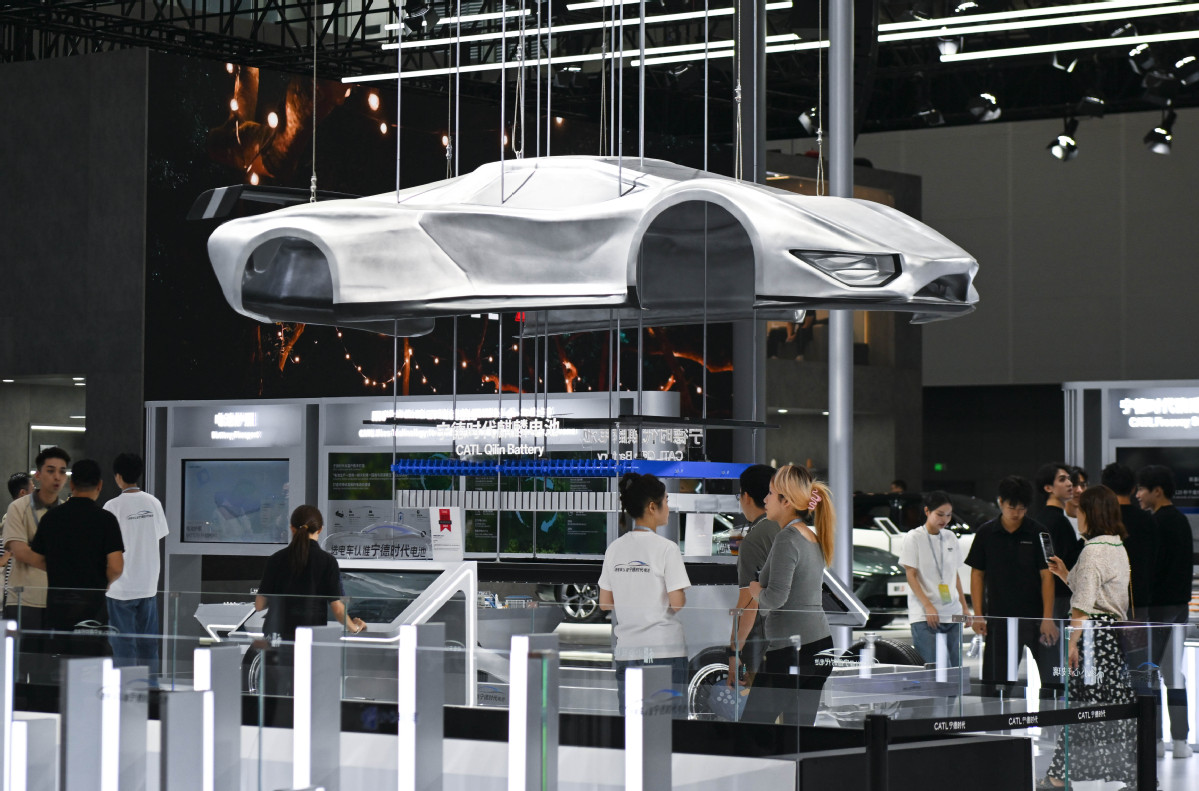
 0 Comment(s)
0 Comment(s) Print
Print E-mail China Daily, December 12, 2024
E-mail China Daily, December 12, 2024

Visitors gather at Contemporary Amperex Technology's booth during an auto expo in Guangzhou, Guangdong province, in November. [Photo/Xinhua]
Franco-Italian automaker Stellantis and Chinese battery giant Contemporary Amperex Technology Co Ltd announced on Tuesday an investment of 4.1 billion euros ($4.3 billion) to form a joint venture that will build a large-scale lithium iron phosphate (LFP) battery plant in Zaragoza, Spain.
The move marks another major step by CATL — the world's largest electric vehicle battery maker — in overseas expansion, after it brought its battery manufacturing technology to Europe through its two plants in Germany and Hungary, which are already operational.
The facility, which is expected to start production by end-2026, could reach up to 50 gigawatt-hours capacity by then. This, according to industry experts, can power an average of 700,000 cars a day.
The 50-50 joint venture between CATL and Stellantis will boost the latter's LFP portfolio in Europe, enabling the automaker to offer more affordable battery-electric passenger cars.
"Stellantis is committed to a decarbonized future, embracing all available advanced battery technologies to bring competitive EV products to our customers," said Stellantis Chairman John Elkann.
"This important joint venture with our partner CATL will bring innovative battery production to a manufacturing site that is already a leader in clean and renewable energy, helping drive a 360-degree sustainable approach," Elkann said.
In November 2023, Stellantis and CATL signed a nonbinding deal for the local supply of LFP battery cells and modules for EV production in Europe and established a long-term collaboration on creating a bold technology roadmap to support Stellantis' advanced battery EVs and identifying opportunities to further strengthen the battery value chain.
"The new joint venture has taken our cooperation with Stellantis to new heights, and our cutting-edge battery technology and outstanding operation know-how combined with Stellantis' decadeslong experience in running business locally in Zaragoza will ensure a major success story in the industry," said Robin Zeng, chairman and CEO of CATL.
According to market consultancy SNE Research, Chinese battery makers have made 65.5 percent of the total global EV battery installations in the first 10 months. CATL took the crown with 36.8 percent.
Pan Helin, a member of the Expert Committee for Information and Communication Economy, which is part of the Ministry of Industry and Information Technology, said that as domestic competition becomes increasingly fierce, it is an inevitable trend for power battery companies to go overseas.
"If they don't expand the overseas market, they will not be able to obtain the scale effect of power battery manufacturing. At present, there is still a lot of room, as overseas battery markets are expected to grow several times in the coming years."
On the other hand, Pan said that amid geopolitical tensions, Chinese battery companies continue to offer more high-quality, affordable technologies and products for the global market.